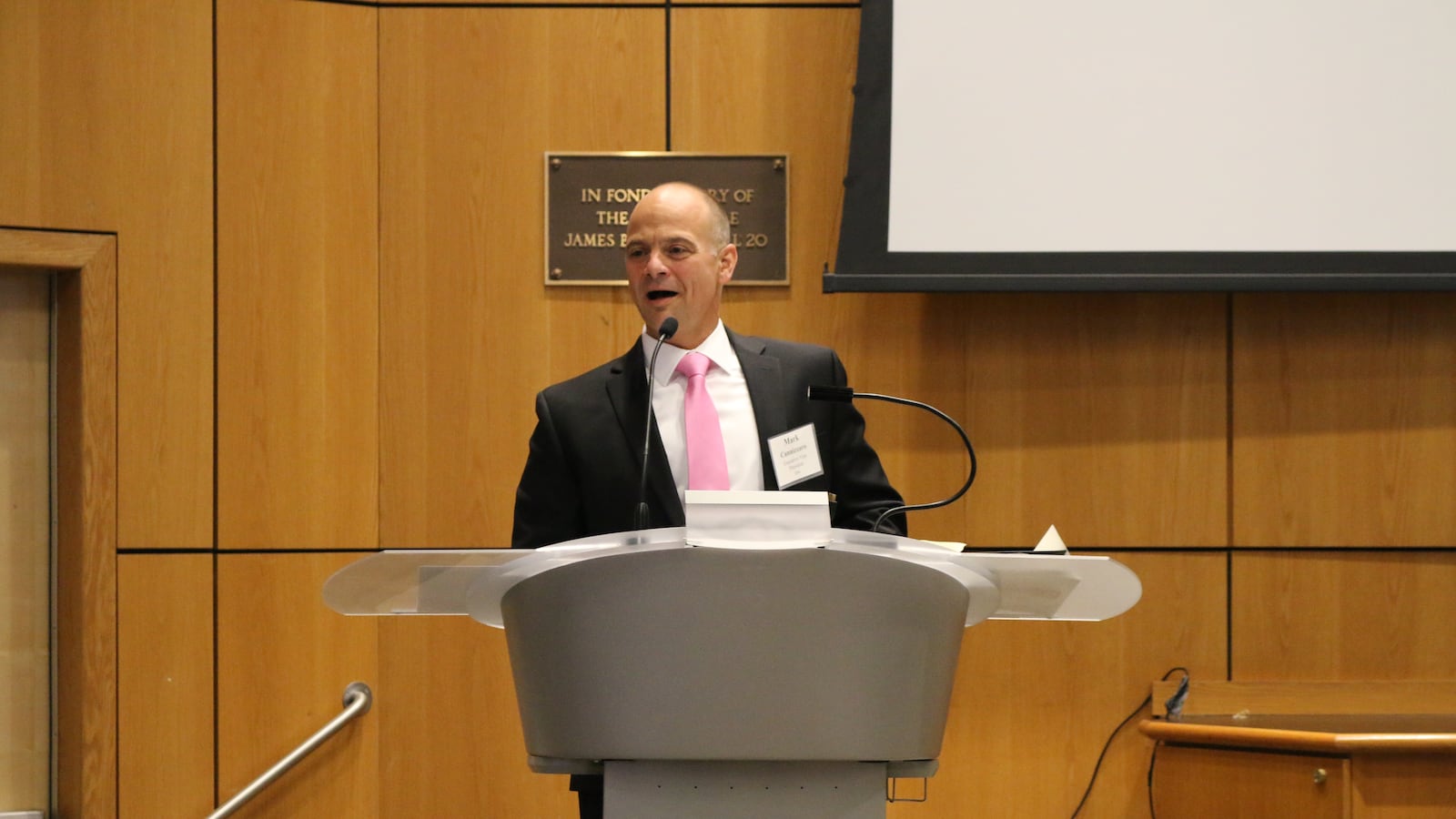A top union official criticized Mayor Bill de Blasio’s plan to slash funding for longer school days at dozens of struggling schools Monday, arguing that cuts to the department’s budget shouldn’t come at the expense of learning.
“I certainly think [the mayor] should have found other ways to make cuts without affecting schools or classrooms,” Mark Cannizzaro, head of the city’s principals union, said in an interview.
Last week, de Blasio unveiled a budget proposal that will eliminate $19 million in annual funding that lengthened the school day by an hour at 71 struggling schools as part of his hotly debated Renewal school turnaround program.
“The extended learning, in terms of the impact per dollar, we decided was something that we could reduce,” the mayor said during a press conference.
The decision to shorten the school day represents an about-face for an administration that has made flooding low-performing schools with new social services and academic coaching a cornerstone of its improvement strategy. Officials are technically ending the $773 million Renewal program, which has shown disappointing results, this year. But they are continuing most of its core elements — raising questions about why longer school days are on the chopping block.
City officials said they reached the decision to cut the extended day funding partly because they had been tasked with finding $104 million in trims to the education department’s $27.1 billion budget. But they also said the decision was based on conversations with principals who told them that “the most effective resources” through the Renewal program were larger school budgets and partnerships with non-profit organizations — both of which will continue.
The education department did not say how many principals were surveyed or offer any details about the cost-benefit analysis that caused them to cut funding for the program, which helped finance pay boosts for teachers and principals who stayed at school longer. A post-mortem released by the department on the successes and failures of the turnaround program did not reach any conclusions about the merits of longer school days, though some research suggests it can help low-income students.
Cannizzaro said some principals he has spoken with generally support the extended school days, contrary to the department’s characterization that principals did not feel it was a key feature. “They felt the extra hour was important to school improvement and they’re very upset at this point,” he said.
One Renewal school assistant principal, who spoke on condition of anonymity, said the longer school days allowed for more remediation with students who were behind in core subjects such as reading and math, helped students catch up on credits toward graduation, and made student scheduling much more flexible.
But it also created headaches. After-school clubs and activities often suffered since it was difficult to find teachers and students who wanted to stay even longer — and the lengthier days created scheduling issues for student athletes who wound up missing more class time to travel for games. Schools with limited resources also struggled to maximize the longer day both for students who need remedial help and those who didn’t.
“What do you do with the juniors and seniors who are well on track? You’re just filling their day,” the assistant principal said.
Instead, the assistant principal wished the department would allow schools to focus longer school days at the students who need it most instead of mandating it for everyone. “The flexibility would allow us to target specifically what they need instead of the seats they must fill.”
A Bronx Renewal school principal, who also spoke on condition of anonymity, said it was a mistake to cancel the longer school days and did not hear from any department officials about wanting principal input on the decision. The principal added that the extra learning time didn’t just help students make academic progress — it also kept them out of trouble.
“In a community like mine, where there’s a lot of poverty and gang violence, we want to keep the children with us as long as we can,” the principal said. “The extended learning time assisted us in doing that.”

